
Capacity Building with Robert Glazer
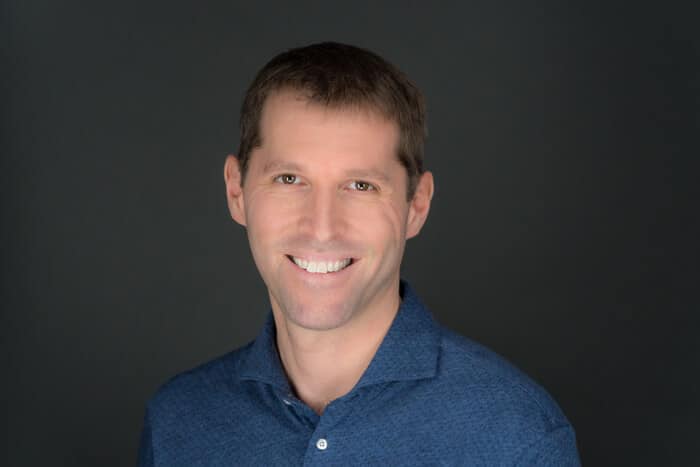
If we invest in employees holistically, not try to make them better employees, but actually just make them better, we would get the work benefits and they would get the benefit outside of work.
Robert Glazer, Author of Friday Forward and Elevate
In a year as unexpected as the one we’ve just experienced, what happens if you keep going, taking care of what needs to be done to stay afloat, but not consciously building strength for yourself? This is what Robert Glazer’s 4 capacities quiz seeks to answer. The four capacities is a framework on how to develop your spiritual, intellectual, physical, and emotional capacities. Take the assessment, discover how to appreciate your strongest capacity, and develop your weakest capacity. End your week better than the way it started. Wrap up this year better than you started.
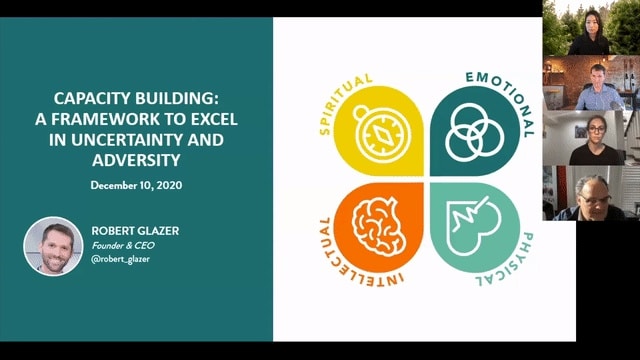
Setting the stage
Robert’s concept of capacity building came from a simple idea: “If we invest in employees holistically, not try to make them better employees, but actually just make them better, we would get the work benefits and they would get the benefit outside of work.”
In Robert Glazer’s WSJ bestseller Elevate, he introduces this framework called “Capacity-Building.” Capacity building focuses on incremental improvement across 4 areas: spiritual, intellectual, physical, and emotional. Improving in these areas is like building a muscle, it takes time but the more you work at it, the more natural it becomes. You may have a natural affinity for one capacity, but each one can be grown and developed.
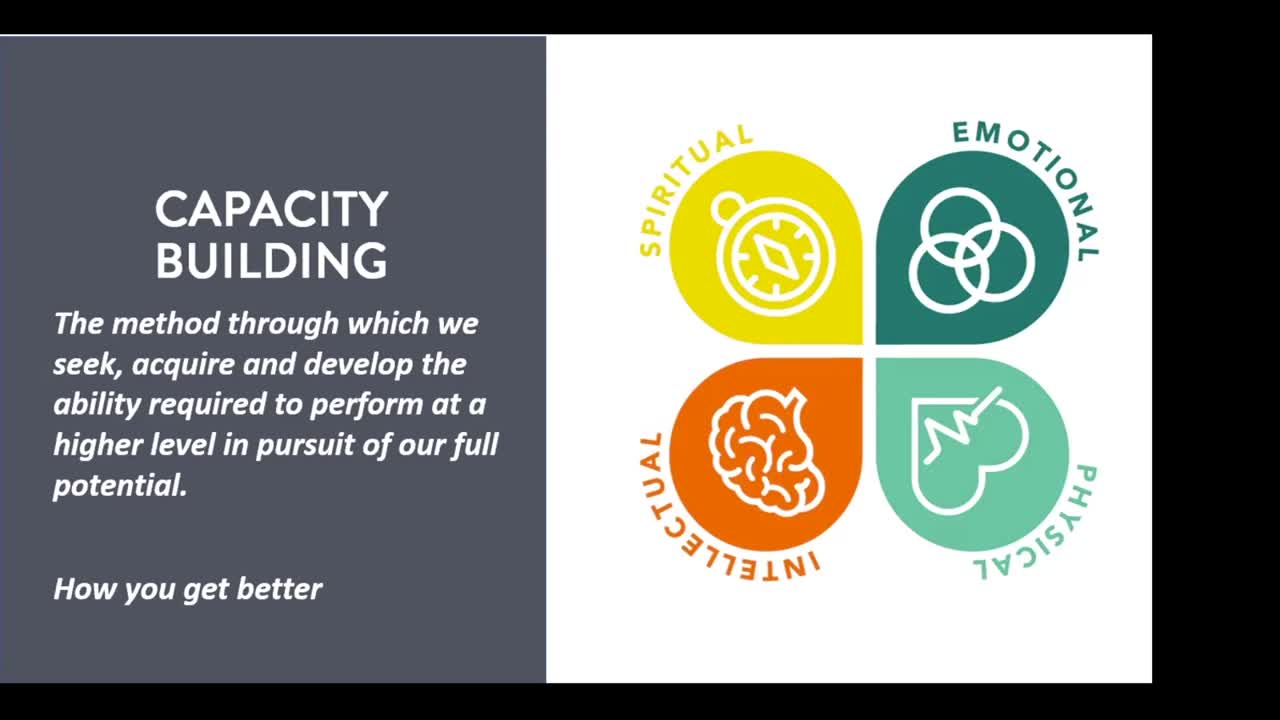

Especially in tough times like many are facing in 2021, living by your core values ensures you’re making the right decisions. “When you’re pressure tested, those (core) values become more important, not less important.” Establishing these values and identifying what’s important to you empowers you to make confident decisions in difficult situations.
Spiritual Capacity
It all starts with your spiritual capacity. This focuses on “understanding who you are, what you want most, and the standards you live by –your North Star.” As part of this capacity, develop the 5 core values you live by and use to guide your decision-making process. As long as you’re making a decision based on one of your core values, you’re “safe” and should feel confident in what you’re doing. Your core values will also act as a pillar that supports the core purpose of your life (Start with Why, popularized by Simon Sinek.) It’s tough to be a great leader if you don’t have a clear sense of who you are and what you want. Robert shared with us his 5 core values, which serve as the foundation of his purpose, which is to “share ideas that help people in organizations grow.”
Intellectual Capacity
Having established what you find most important, intellectual capacity is “how we improve our ability to think, learn, plan, and execute with discipline.” It’s how you do something better, faster, and more efficiently than you did yesterday.
Whatever your goal may be, you need to actively pursue it. Establishing a morning routine is a great way to do so; it puts you on offense each day. Also ask yourself, “what are the three things you can do before noon that, if accomplished, will mean I’ve had a productive day?” This helps prioritize your day and begin with the most important items on your to-do list. Commit to a consistent morning routine, and you’ll make meaningful progress towards your goals.
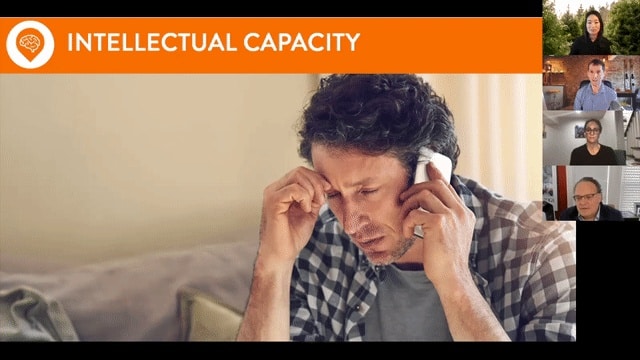
Accountability
Establishing accountability is another way to make sure you’re always moving towards the goals you’ve set. Do so through the help of self-accountability, peer accountability, and public accountability. Self-accountability is constantly reminding yourself about what you want to accomplish, usually through a calendar or journal. Peer accountability involves telling a peer you’ll commit to something, then actively working towards that deadline. Public accountability is making your goals public. This not only drives you to reach these goals but ensures others remind you as well. Establish one or multiple types of accountability and reach your goals faster!

Physical Capacity
Among other advantages, staying active has an effect on how your body processes stress. We’re designed with a fight or flight mechanism for danger. “The problem is, we’re using that mechanism for emotional and psychological stress, and it has the same physiological effect on our body as physical stress.” To counter this response, we need to take time for ourselves. Meditate, do yoga, or go for a run. We all need to rest, relax, and recharge. We have to focus on ourselves before we can help others.
Emotional Capacity
Emotional capacity focuses on “how we react to challenging situations, things outside our control, and the quality of our relationships.” This may be the most difficult for many of us to master. We often stress ourselves out over things that are out of our control. “If you don’t control it, why worry about it? Because you don’t control it. If you do control it, why worry about it? Because you control it.” Try not to waste your energy worrying about things you can’t impact.

For the most part, you’re able to control who you spend your time with. Avoid spending time with people that make you feel worse (Robert refers to them as “energy vampires.”) This doesn’t mean to cut them out of your life altogether, but to put less energy into spending time with them. Focus more on the people that lift you up and help recharge your emotional battery.
Putting it into practice
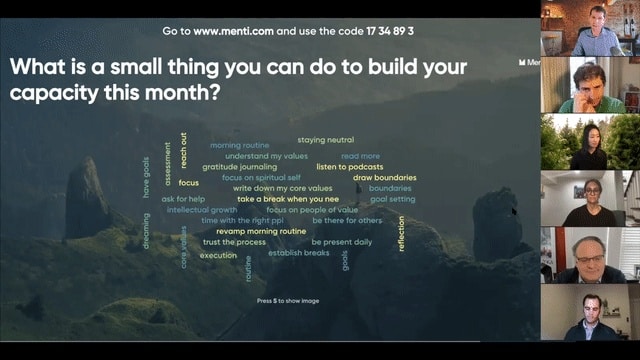
The most important thing to remember as you develop these capacities is to “lift as we rise.” Use your talents to help those around you get through difficult times. Demonstrate excellence in everything you do, both for yourself and for others. Many new leaders and companies will rise in the age of Covid-19.
To finish off the discussion, participants submitted ideas on what they can do to build their own capacity this month. The answers were diverse but a few commonalities emerged, establishing a morning routine and reading more. These are in line with the habits of productive individuals and a perfect first step in building your capacity. What’s great to see is that none of the answers relate directly to work but instead focus on the self. Capacity building is about becoming a better you, not a better worker.
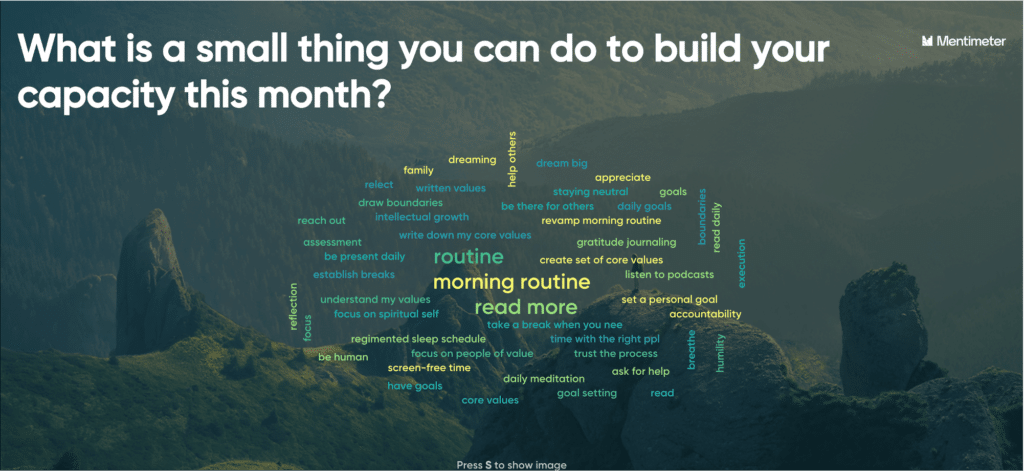

ready to build your team’s capacity?
The Story of Friday Forward
Friday Forward was born out of Robert’s desire to read something inspirational in the morning. He isn’t a fan of the traditional “quote of the day” newsletters that many people circulated so he started his own to send to his team, initially called Friday Inspiration. People began sharing this outside of the office and other entrepreneurs started forwarding it to their own companies. It grew organically from there. Especially in difficult times, it’s important to stay positive and be there for one another. “Even though we’re not actually able to be with people, you can connect, you can reach out.”
How does the law of attraction fit into your life and daily practice?
Robert finds vision boards to be a useful tool for goal setting. He believes in the law of attraction as a form of self-accountability. When you write something down and keep it in front of you or others, you’ll be constantly reminded of it. Ultimately you’ll be pushed towards your goals as a result.
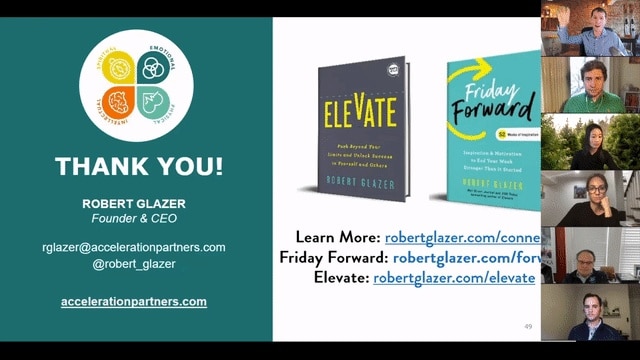
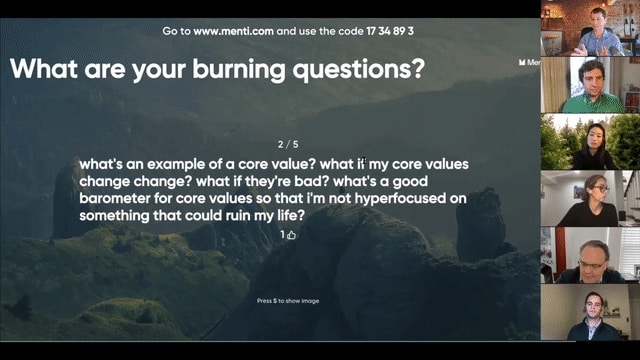
What is an example of a core value?
“A core value is more than just a word. It has to be a phrase that’s differentiated and must be something that can be objectively measured. It must also be a decision-making matrix.” An example is long term orientation. This allows you to ask, “am I making the right long term decision here, or am I thinking too short term?” You can rate the decision based on these criteria. Now that you know how core values are developed, it’s time to create your own personal list to live by!
Bob, what’s your morning routine?
Borrowing heavily from Hal Elrod’s Miracle Morning, Bob does a lot of reading, writing, and meditation in the morning. It’s important for him to not begin work until he’s ready. Part of his routine involves selecting the top 3 items he will focus on. When deciding which 3 things to work on, he’ll often look at the quarterly goal, to determine what he can do to progress that.

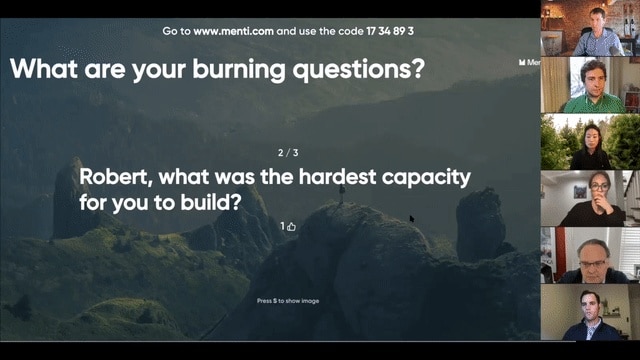
What’s the hardest capacity for you to build?
The most difficult capacity to build is spiritual because it is challenging to determine your goals and purpose. It is, however, the gateway to building upon the other capacities. Determining your core values is difficult but truly rewarding. Robert’s core values help him determine the type of work and organizations he puts his time into. “There’s no hack to that…you need to do the work, create the values and road test them.”
What are some examples of Intellectual Capacity and how can we develop it?
Intellectual capacity focuses on establishing a productive work process. Some key tenets include establishing a morning routine, committing to learning regularly, creating clear short and long-term goals, and implementing one or more forms of accountability. Once you do these, you’re well on your way to developing your intellectual capacity.

Conclusion
You now have the tools and knowledge to begin building your personal capacity. Investing in yourself not only makes you more productive but points you in the direction of where you should focus your energy and time. The end result is more satisfaction with your work. As you begin on your personal journey to growth, we’re here to support you and your company. Our team of SaaS growth experts has years of experience in diagnosing and optimizing your team, empowering them to reach their full potential. Are you ready to reach your full potential?
